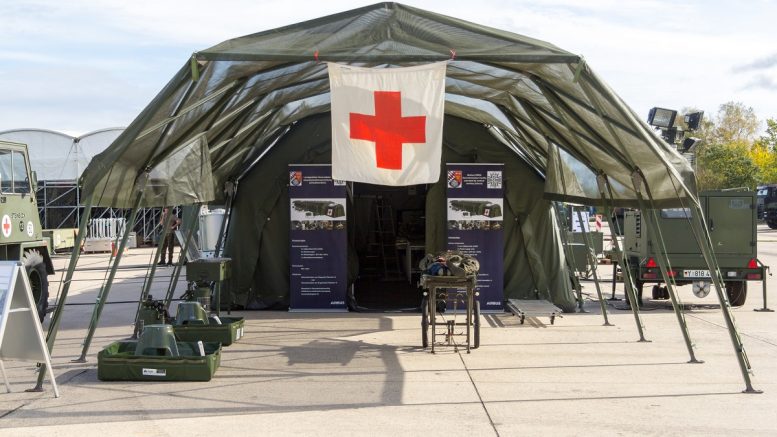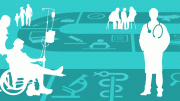During times of crisis, such as natural disasters, armed conflicts, or disease outbreaks, the need for efficient and timely medical assistance becomes paramount. Deployable field hospitals play a vital role in emergency response efforts by providing essential medical services in remote or disaster-stricken areas. These portable medical facilities are designed to be quickly established and operational, ensuring that affected communities receive the care they urgently require. This article will explore why deployable field hospitals are essential for emergency response.
-
Enhancing Accessibility and Reach
One key advantage of a deployable field hospital is its ability to enhance accessibility and reach in emergencies. When disasters strike, conventional medical infrastructure may be severely damaged or overwhelmed, making it difficult for affected individuals to receive immediate medical attention. Deployable field hospitals, on the other hand, can be rapidly deployed to disaster areas, even in the most challenging environments. Equipped with mobile medical units and personnel, these hospitals can bring healthcare directly to the affected populations, reaching remote locations that would otherwise be inaccessible.
-
Rapid Response and Immediate Care
Deployable field hospitals enable rapid response and immediate care to those in need. In emergencies, time is of the essence, and delays in medical assistance can have dire consequences. These portable medical facilities are designed for quick deployment, allowing medical teams to set up and start operations swiftly. Equipped with essential medical supplies, equipment, and trained personnel, field hospitals can provide immediate medical attention to the injured or ill, stabilising their conditions and potentially saving lives. This rapid response capability is crucial when healthcare infrastructure is overwhelmed or non-existent.
-
Flexibility and Adaptability
Another crucial aspect of deployable field hospitals is their flexibility and adaptability. These medical facilities can be customized and configured to meet the specific needs of different emergency scenarios. Whether it is a sudden contagious disease outbreak, a natural disaster, or a humanitarian crisis, deployable field hospitals can be equipped with the necessary resources and personnel to address the particular challenges. This adaptability allows for efficient triage, surgery, intensive care, and other essential medical services, ensuring that patients receive the appropriate level of care based on their conditions.
-
Collaboration and Coordination
Deployable field hospitals promote collaboration and coordination among stakeholders in emergency response efforts. In a crisis, numerous organizations, including local authorities, national governments, non-governmental organisations (NGOs), and international aid agencies, work together to provide relief and medical assistance. Field hospitals serve as focal points for coordination, providing a central hub where various entities can come together to pool resources, expertise, and manpower. This collaborative approach ensures efficient utilisation of available resources and minimises duplication of efforts, resulting in a more effective emergency response.
-
Capacity Expansion and Surge Management
During large-scale emergencies, existing healthcare facilities can quickly become overwhelmed by the influx of patients requiring medical attention. Deployable field hospitals are crucial in expanding the overall healthcare capacity and managing surges in patient numbers. These portable medical facilities can be set up adjacent to existing hospitals or in areas with limited medical infrastructure, effectively increasing the number of available beds, medical personnel, and resources. By alleviating the burden on existing healthcare systems, deployable field hospitals ensure that all patients receive the care they need, reducing the risk of avoidable morbidity and mortality.
-
Streamlined Patient Flow and Triage
Deployable field hospitals are crucial in streamlining patient flow and implementing efficient triage systems during emergencies. When large numbers of patients require medical attention, it is essential to prioritise and categorise individuals based on the severity of their conditions. Deployable field hospitals are designed with dedicated triage areas where trained medical personnel can assess patients and assign appropriate levels of care. This ensures that critical cases receive immediate attention while less severe cases are managed efficiently, reducing the overall strain on healthcare resources.
-
Infection Control and Disease Containment
Infectious diseases pose a significant threat during emergencies, as populations may be exposed to unsanitary conditions or come into close contact with individuals carrying contagious pathogens. Field hospitals are equipped with infection control measures and protocols to prevent the spread of diseases within their facilities. These measures include isolation units, strict hygiene practices, proper waste management, and implementing infection prevention and control guidelines. By effectively containing and managing infectious diseases, deployable field hospitals help prevent further outbreaks and protect the health of both patients and healthcare workers.
Conclusion
Deployable field hospitals are undeniably essential for effective emergency response. Their ability to enhance accessibility, provide rapid response and immediate care, offer flexibility and adaptability, promote collaboration and coordination, expand healthcare capacity and manage surges makes them indispensable in crises. These portable medical facilities enable medical teams to reach remote and affected areas, saving lives and alleviating suffering. By recognising the significance of deployable field hospitals and investing in their development and deployment, we can strengthen our emergency response capabilities and enhance the overall resilience of our communities in the face of adversity.





